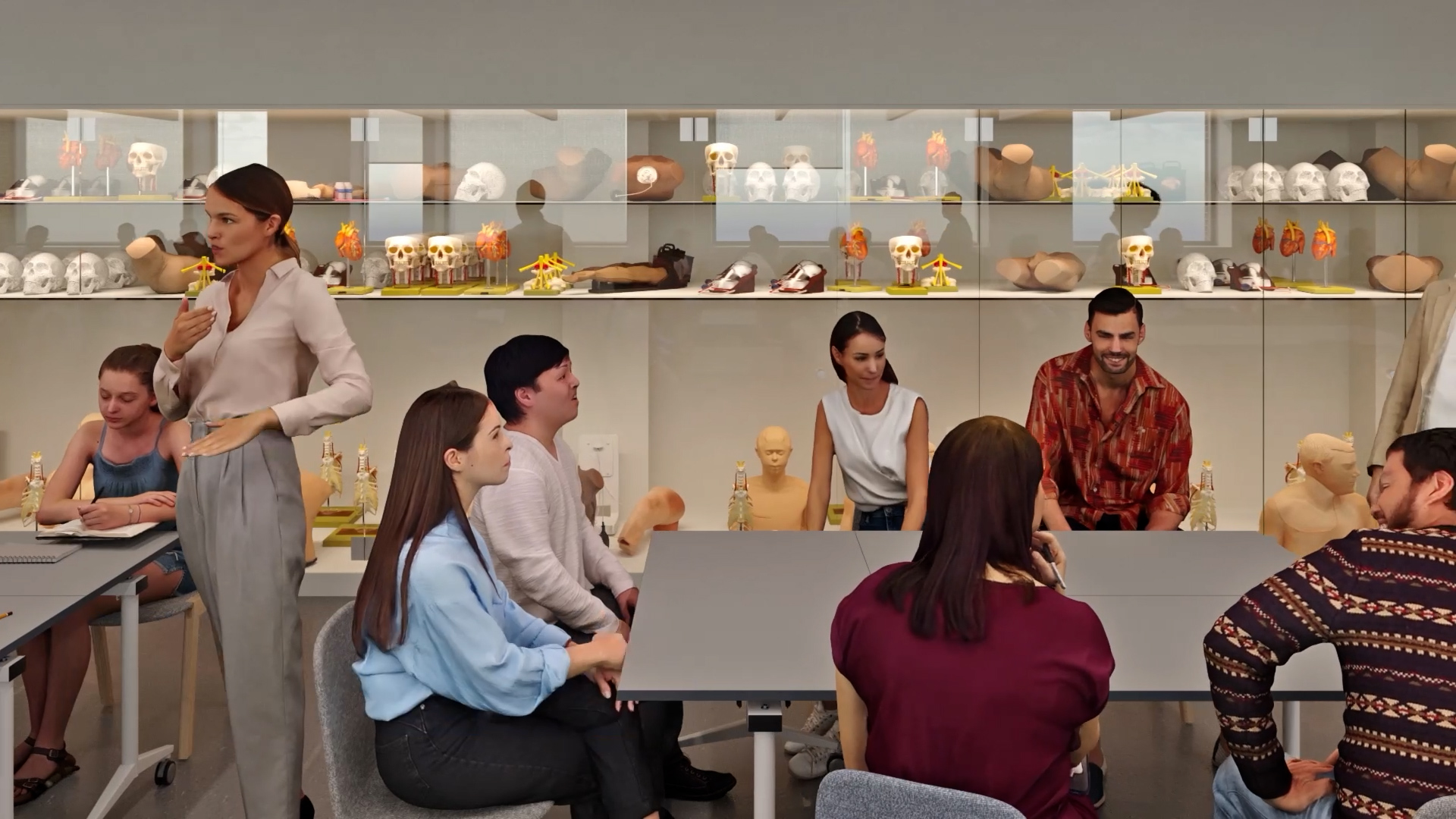All candidates are considered on an individual basis and we accept a broad range of qualifications. The entrance requirements listed apply to 2026 entry.
Required subjects
ABB at A level, including one of biology, chemistry, mathematics, environmental science, physics, physical education, psychology, sociology, criminology, religious studies or philosophy.
A pass is required in science practical tests, where these are assessed separately.
Excluded subjects
Citizenship studies, critical thinking, general studies and global perspectives.
GCSEs
English, maths and science at grade 4 (C) or above (or equivalent level 2 qualification). We do not accept Functional Skills English and Functional Skills Maths.
Please note: you must have achieved the GCSEs at the point of application and not at the point of entry.
IB score
30 points overall or 6,5,5 in three HL certificates
IB requirements
HL 5 in one of biology, chemistry, physics, sports, exercise and health science, mathematics: analysis and approaches, mathematics: applications and interpretation, psychology or philosophy
We recognise that applicants have a wealth of different experiences and follow a variety of pathways into higher education.
Consequently we treat all applicants with alternative qualifications (besides A levels and the International Baccalaureate) on an individual basis, and we gladly accept students with a whole range of less conventional qualifications including:
- Access to HE Diploma
- Advanced Diploma
- BTEC HND/HNC
- BTEC Extended Diploma
This list is not exhaustive. The entry requirements for alternative qualifications can be quite specific; for example you may need to take certain modules and achieve a specified grade in those modules. Please contact us to discuss the transferability of your qualification. Please see the alternative qualifications page for more information.
- RQF Level 3 BTEC National Extended Diploma in Health and Social Care, Applied Science, Applied Psychology or Sports and Exercise Science - DDD
- RQF BTEC National Extended Diploma (in any other subject) and A level in science - DDD plus B
- RQF Level 3 BTEC National Diploma in Health and Social Care, Applied Science, Applied Psychology or Sports and Exercise Science plus A level - DD plus B
- RQF Level 3 BTEC National Diploma (in any other subject) and A level in science - DD plus B
- RQF Level 3 BTEC National Extended Certificate in Health and Social Care, Applied Science, Applied Psychology or Sports and Exercise Science and two A levels - D plus BB
- RQF Level 3 BTEC National Extended Certificate (in any other subject) and two A levels - D plus BB
- Access to HE Diploma in Nursing and Midwifery, Health Professions, Social Science or Science 24 Level 3 credits at Distinction and 21 Level 3 credits at Merit
- T Level Health Science or Health with pathways in Adult Nursing, Midwifery, Mental Health and Care of Children and Young People - Distinction
We make contextual offers to students who may have experienced barriers that have restricted progress at school or college. Our standard contextual offer is usually one grade lower than the advertised entry requirements, and our enhanced contextual offer is usually two grades lower than the advertised entry requirements. To qualify for a contextual offer, you must have Home/UK fee status and meet specific criteria – check if you’re eligible.
Our Health Sciences with a Foundation Year provides an alternative route onto our degree if you do not meet the entry requirements for the course and you are a UK student.
At the University of Nottingham, we have a valuable community of mature students and we appreciate their contribution to the wider student population. You can find lots of useful information on the mature students webpage.
Interview
An interview is mandatory, in line with our professional and regulatory body requirements.
All offers are also subject to a successful interview and satisfactory health screening, and disclosure and barring service (DBS) clearance. Visit our Midwifery page to find out more about personal statements, work experience and the interview, including how to prepare, and what to expect.
Health and Criminal Records screening
In accordance with Professional and Regulatory Body requirements, all applicants are subject to health screening by Occupational Health, and Disclosure and Barring Service (DBS) checks before they can commence the course.
More information can be found on the School of Health Sciences Occupation Health and DBS page.
Work experience
You should consider work experience or extracurricular activities to boost your application. This can include experience in the caring environment or other environments, such as working in a cafe. You need to identify any skills that you have gained from this experience and reflect these in your personal statement and interview.
Minimum age requirement
We do not consider your application if you will be under 17 years and 10 months on the 01 September of the year you start your course.
Sport scholarship scheme
Our range of sports scholarships are aimed at providing an unrivalled level of support to the brightest and best talents in the sporting world.
As well as a reputation for academic excellence, we have a history of sporting success and are passionate about supporting promising athletes during their time at Nottingham. Please check the sport website for further details, including eligibility criteria.
Part-time working alongside university studies
As a student on a full-time professional training course, it is expected that your primary focus would be your full-time university studies. If you're considering part-time paid employment alongside your university studies, it is advised that you discuss your position with your personal tutor before committing.
Previous applicants
You are welcome to submit an application, even if you have previously applied to study midwifery at the University of Nottingham. Applicants who have been unsuccessful in a midwifery interview with us previously should contact us before submitting a second application for further advice.




